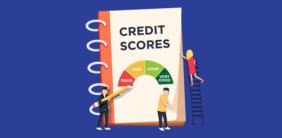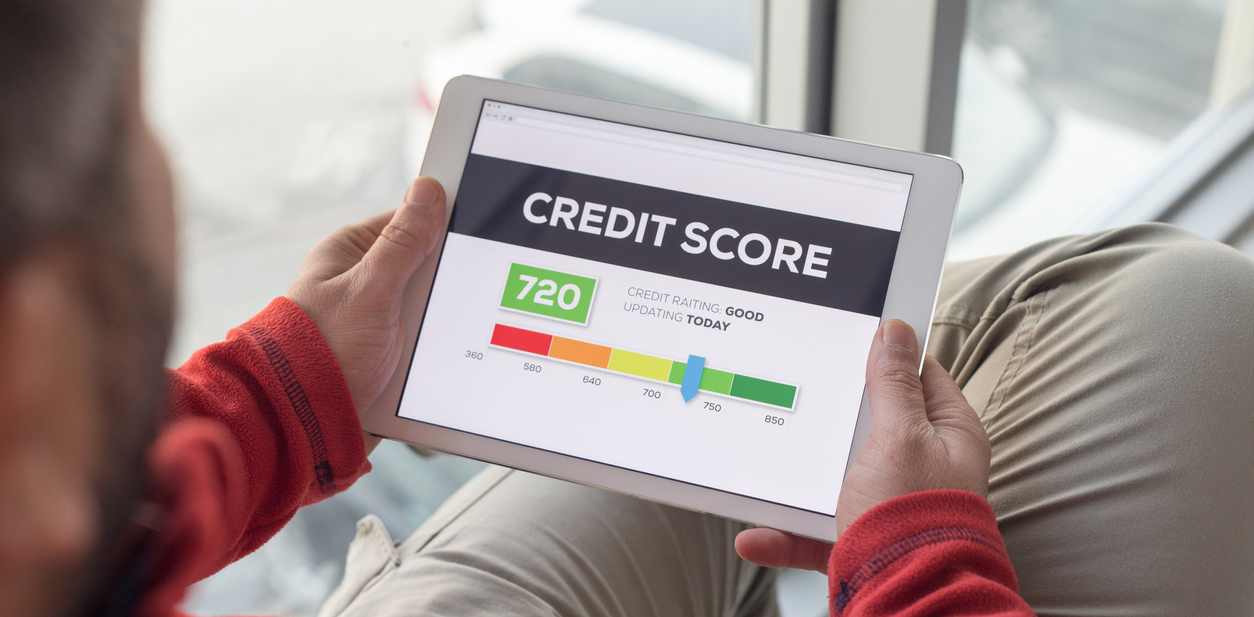Filing for bankruptcy can feel defeating. Applying for credit after just adds to the stress.
It’s not an easy decision to declare bankruptcy. A job loss, divorce, illness, or even a pandemic can drain your bank account and leave you with no other choice. From the most reckless spenders to the most responsible penny pinchers, a bankruptcy can happen to anyone.
After a bankruptcy, your credit score plummets, making it harder — but not impossible — to get approved for any credit. That includes car loans and car loan refinancing.
If you do get the stamp of approval from a lender, the offer is often a subprime loan with a higher interest rate and a higher monthly car payment. In other cases, a cosigner may be required so their credit and income help offset concerns about your ability to pay back the loan as agreed.
Whether you’re shopping for a new car or currently stuck in a car loan with unfavorable loan terms, here’s what you need to know about getting approved for car loans and car refinance loans after bankruptcy.
What Is Bankruptcy and How Does It Affect My Credit Score?
When individuals, couples, or businesses find themselves in a position where they cannot meet their financial obligations, bankruptcy is a legal option that helps them manage their debt through federal court. It’s an alternative to debt consolidation if you cannot afford monthly payments. Depending on your income, you might have a payment plan, or your debt might be discharged.
There are several types of bankruptcy, referred to as ‘chapters’:
- Chapter 7: Liquidation bankruptcy requires the sale of your nonexempt property so funds can go to your creditors.
- Chapter 9: This is for municipalities, like airports, hospitals, school districts, and utility districts.
- Chapter 11: The most common chapter for businesses, this helps reorganize your corporate and small business debt.
- Chapter 12: This is used exclusively for family farmers and fishermen.
- Chapter 13: This allows individuals and couples to make payments on their debt for up to five years.
- Chapter 15: Very uncommon, this chapter is for foreign debtors that are typically filing for bankruptcy in other countries.
The two types of bankruptcies that impact individuals and married couples are chapter 7 and chapter 13 bankruptcies. Occasionally, you might experience chapter 11 bankruptcy, though that’s generally only for business owners that are liquidating.
This is a federal legal process with a uniform code, so the state government doesn’t regulate anything except for definitions of exempt and nonexempt property. There are standard assets that most states consider to be exempted though, including:
- A portion of earned unpaid wages
- A portion of the equity in your primary residence
- Damage payments you receive from a personal injury
- Household appliances
- Jewelry of a certain value
- Motor vehicles of a certain value
- Pensions
- Public benefits, even in your bank account
- “Reasonably necessary” clothing
- “Reasonably necessary” household goods
- Tools for work of a certain value
This means you can keep your car and home, as well as most of the things in it. However, that will ultimately depend on what chapter of bankruptcy you file for and what kind of assets you already have.
Chapter 7 Bankruptcy and Your Credit
Chapter 7 bankruptcy is the most common type in the U.S. Known as liquidation bankruptcy, you will have to sell your nonexempt property — any additional vehicles or homes, liquid assets like cash in your bank account, heirlooms that have value. In many cases, chapter 7 bankruptcies result in ‘no asset’ situations because people have already sold everything they can to get out of debt.
While this will help resolve debt in the most critical circumstances, it does have serious credit impacts. It will remain on your credit report for up to a decade. That means it’ll take at least ten years for you to have an ‘excellent’ credit score again. During that time, you’ll have a hard time finding new credit options. Take advantage of secured credit cards and loans so you can start rebuilding your credit after bankruptcy.
Another consideration with chapter 7 bankruptcy is that you can’t file again for eight years. If you find yourself in a serious bind in a few years, you’ll have limited recourse for getting out of debt.
Chapter 13 Bankruptcy and Your Credit
Chapter 13 bankruptcy is less common, but it is still a favorable option for anyone who wants to preserve their assets. You’ll have a payment arrangement for three to five years. After that, your debt will be discharged depending on what you negotiate.
This is still going to negatively impact your credit score, but you might have less extensive damage with a chapter 13 payment arrangement. It only remains on your credit report for seven years, which means you’ll be back on track sooner. It might also lead to more credit options than a chapter 7 bankruptcy will, which can be critical to rebuilding your credit. It is more important, though, to make sure you make your chapter 13 payments on time.
You can file again in two years if you need to, which can be a practical solution if you need to renegotiate your payment arrangement. However, be careful that you don’t wind up in a cycle of debt.
Can I Get a Car Loan After Bankruptcy?
Whether you can get a car loan after bankruptcy or not depends on a few different factors. Some lenders might not give you a chance at all, but there are others that will — you’ll just need to prepare yourself for the cost.
“Repairing your credit after declaring bankruptcy will likely take months or years, so applying for a loan right off the bat might not be your best bet.” says Sean Messier, credit industry analyst at Credit Card Insider. “You might be able to get an auto loan as soon as you begin the recovery process, though any interest rates available would likely be astronomically high, a risk that’s probably not worth taking.”
You also need to prepare for a more intensive research and application process. You might have a hard time finding lenders that will work with you. For example, you may find a dealership with a network of banks and credit unions that work with borrowers with all kinds of credit. Many lenders might have more stringent application requirements, like additional income limits or requiring references.
These are the most important things you need to know about getting a car loan after bankruptcy:
- Interest rate hikes: You’ll probably have a hard time getting the best auto loan rates, but you can still qualify for subprime car loans that have higher interest rates and monthly payments. Apply for a few loan offers and compare them to find the best auto loan rates.
- Higher loan fees: Subprime loans generally have higher costs, like documentation fees and prepayment penalties. They also tend to have higher fees for late payments. You want to compare these costs when you’re comparing loan offers.
- Recent credit history: To qualify for a car loan after bankruptcy, you’ll want to make sure you don’t have any other credit problems since your bankruptcy was discharged. That means any secured credit accounts need to have on-time payments.
Depending on your income situation since filing, you’ll likely want to keep your loan amount down by purchasing a used car or making a higher down payment.
Can I Refinance My Car Loan After Bankruptcy?
Similarly to car loans, refinancing when you have a bankruptcy on your credit file will make it harder to qualify. However, many borrowers do apply and get approved for car refinance loans.
In 2019, 30% of applicants with one bankruptcy on their record were approved for a car refinance loan, according to RateGenius analysis. Although the average interest rate for the refinance loan was higher, borrowers with one bankruptcy still lowered their interest rates by nearly five points after refinancing.
In 2019, 30% of applicants with one bankruptcy on their record were approved for a car refinance loan.RateGenius
Keep in mind it’s not just your credit that lenders are looking at when evaluating your auto loan refinance application. Your vehicle, income, loan-to-value ratio, debt-to-income-ratio, down payment amount, and other factors are taken into account when making a loan decision. If your application is strong in other areas (such as LTV and DTI), it can help balance out the negative factors (like bad credit).
Because every lender has their own requirements, it’s important to shop around to find a bank or credit union that will work with you. You’ll also want to check your credit report and get a free credit score before applying to get an idea of how much your credit has improved since you took out the first auto loan.
Car Loans and Refinancing After Filing for Bankruptcy
It might seem like a daunting task to find a car loan or refinance loan after bankruptcy, but it can be done. “Since every bankruptcy is different, the length of time it takes for you to get favorable terms on a loan will vary based on how you manage your credit,” continues Messier. “The best way to work toward favorable loan terms is by managing any current debts — including credit cards and loans — as wisely as possible.” With a little patience and mindful credit habits, you should see your credit, and your chances of getting approved for a car refinance loan, improve over time.
About The Author
RateGenius
A better way to refinance your auto loan. RateGenius works with 150+ lenders nationwide to help you save money on your car payments. Since 1999, we've helped customers find the most competitive interest rate to refinance their loans on cars, trucks, and SUVs. www.rategenius.com
;)












